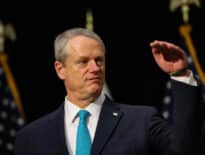
Rick Dimino
We will hear the usual resolutions this time of year: promises to read more books, eat healthier and finally fix the MBTA. Skepticism is warranted with the first two, but this year can be different when it comes to the MBTA because of the unique opportunities ahead – provided the MBTA leadership stays the course.
Years of strategic planning and hard work by the former MBTA Fiscal and Management Control Board began showing results last year. After hundreds of public meetings and dedicated oversight, the FMCB produced impressive results improving operating budget controls, building strategic plans and helping the T increase its capital infrastructure spending to $2 billion per year. The T’s operating budget it stable, new subway vehicles are now in service and significant federal infrastructure funds are coming available.
The FMCB also released clear recommendations on what should come next to transform the MBTA into a cleaner, stronger system that addresses 21st century challenges. Specifically, they called for pilot programs for income-based transit fares, modernizing the commuter rail system and building the Red-Blue connector.
This past summer, the legislature and Gov. Charlie Baker created a new MBTA Board of Directors with the expectation that they would continue the FMCB’s plans. But this new board is sending signals that the recommendations made in prior years are not firm commitments going forward.
Troubling Signs from New Board
The new MBTA Board was recently presented with financial projections showing the agency’s operating budget is balanced and expects to carry a significant reserve for at least the next three years. But instead of welcoming the change to advance projects, its members focused more on the potential challenges five years from now.
For example, the board has not yet moved forward on the FMCB’s recommendation to create income-based fare pilot programs. Meanwhile, Boston Mayor Michele Wu is offering city funds to continue and expand a free bus service on the MBTA’s Route 28 bus route that serves Roxbury, Dorchester and Mattapan. The city of Boston is hoping to make two additional bus routes free for the next two years, as an immediate way to support lower-income riders and environmental justice communities as well as help encourage commuters to use transit.
Early results are showing ridership is up on the 28 bus, compared to other parts of the system and the bus trips are faster due to all-door boarding on its buses. The MBTA should be able to develop a targeted, well-developed fare policy that expands on this success to other areas throughout the region.
The FMCB intended to create a big-picture vision that appealed to the needs of riders, stakeholders and the regional economy. Then they would manage the MBTA’s annual budget and set timelines to deliver these projects. Today, this new MBTA board seems primarily focused on the future operating budget as reason to delay action on established plans that would achieve the long-term changes.
This is all happening while, for first time in recent history, MBTA has the funding in place to make strategic investments. This is largely the result of federal pandemic aid to the agency, but the money is in hand and can be used this year.
Urgency Now Will Pay Off
Major capital investments in the MBTA cannot be avoided and the FMCB understood this. They realized a modern MBTA is essential solution to meeting the commonwealth’s environmental goals, mitigating our roadway traffic and addressing the congestion crisis. The current system must be safer, cleaner and more reliable to shift commuters out of vehicles be viewed as a reliable option for travelers throughout the region.
This is the year to take advantage of federal funds to help pay for projects like the Red-Blue Connector or enhancements to our commuter rail system. If we are too focused on saving money for a rainy day years from now, we could fail to advance important infrastructure projects to meet the timelines of lucrative federal grant programs, and end up seeing these funds go to New York, Maryland and California, rather than metropolitan Boston.
As we begin 2022, we need a firm commitment to our established priorities for our transit system that is focused on the big picture. Much like any worthy new year’s resolution, maintaining a plan for difficult changes takes time, effort and determination. Building a better MBTA will require new revenue in future years, ambitious infrastructure projects and new incentives to encourage transit use throughout the region.
There are no quick fixes to the MBTA’s challenges but urgency this year can make a difference. We need to continue the progress, because this region deserves a stronger MBTA to support our residents, commuters and economy, and we should not shy away from an ambitious vision and steps to get us there.
Rick Dimino is CEO of A Better City.






